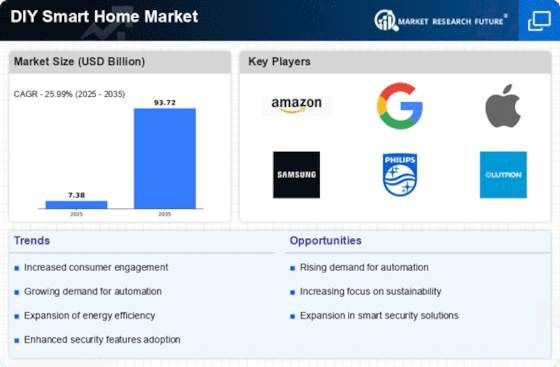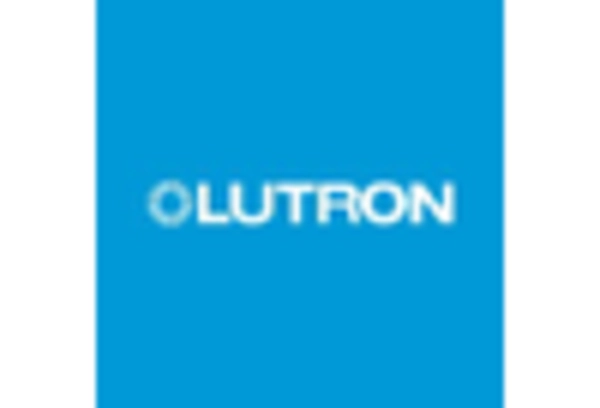Market Share
DIY Smart Home Market Share Analysis
Effective market share positioning strategies are essential for businesses to establish a firm footing and prosper in the highly competitive DIY smart home sector. Differentiation via innovation is one main tactic. Businesses differentiate themselves from rivals by investing in cutting-edge features, special features, and distinctive design aspects. By consistently pushing the limits of what smart home technology can do, these trailblazers draw in tech-savvy customers looking for the newest and most cutting-edge solutions, which helps them capture a sizable portion of the market. Within the DIY smart home industry, pricing methods are also crucial for determining market share positioning. Some businesses take a cost leadership stance, catering to price-conscious clients by providing smart home solutions that are reasonably priced. These businesses use economies of scale and effective production techniques to maintain competitive costs without sacrificing the quality and dependability of their products. Premium positioning, on the other hand, aims to provide high-end, premium smart home appliances with cutting-edge capabilities, appealing to customers who value quality and are prepared to shell out more money for an improved user experience. In the DIY smart home sector, strategic alliances and partnerships are becoming more and more common. To construct complete and integrated smart home ecosystems, companies collaborate with other businesses, such as technology suppliers, service providers, and even house builders. Through these partnerships, businesses may make use of one another's advantages, increase the range of products they provide, and improve the smart home experience as a whole. Businesses may increase their market share and give customers more value by presenting themselves as a component of a wider, linked ecosystem. In the DIY smart home sector, market share positioning is heavily influenced by brand reputation and trust. Customers are more likely to trust businesses that put a high priority on customer happiness, make quality assurance investments, and cultivate a favorable brand image. Having a solid reputation for dependability and customer service may make a big difference in the eyes of customers and encourage brand loyalty. A company's market share is greatly impacted by creating and sustaining a favorable brand image since happy consumers are more inclined to refer to and repurchase products.


















Leave a Comment